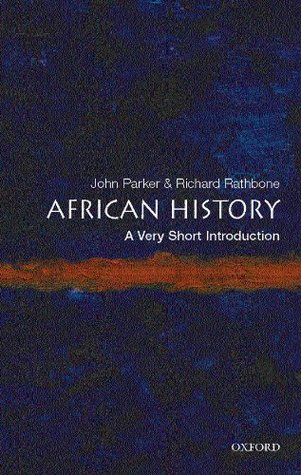More on this book
Kindle Notes & Highlights
by
John Parker
Read between
November 27, 2022 - February 4, 2023
to inherit the territorial entities forged by Eu...
This highlight has been truncated due to consecutive passage length restrictions.
a rival school of historians based at Amadu Bello University in the northern city of Zaria emerged in the 1960s to challenge the intellectual hegemony of Ibadan.
Abdullahi Smith,
Walter Rodney,
How Europe Underdeveloped Africa (1972) signalled a shift away from the ‘nationalist’ approach to more Marxist-influenced economic history.
Georges Balandier,
published a perceptive essay on the changing ‘colonial situation’ and four years later a landmark study of African life
University of Dakar
La philosophie bantou
a universalist view of ‘African thought’ and the black creative spirit
Cheikh Anta Diop.
work was fixated on the supposed cultural unity of pharaonic Egypt and sub-Saharan Africa.
outlook was also shaped by the anti-colonial struggle,
Unity versus diversity
a scholarly debate about the nature of the African past.
also a politic...
This highlight has been truncated due to consecutive passage length restrictions.
In 1957, the Gold Coast became the first sub-Saharan African country to obtain full independence,
Ghana.
Kwame Nkrumah,
the torch-bearer of pan-Africanism and advocate of ‘continental government’,
ethnic identities and inter-regional rivalries were as often as not a product of colonial rule.
the highly authoritarian Belgian regime made a last-minute decision in the late 1950s to jump on the bandwagon of decolonization.
The result was disaster.
Congo Crisis
ended in 1965 with the recentralization of autocratic power following a military coup by ex-journalist turned general, Joseph Mobutu.
Franco Luambo Makiadi,
the leader of T.P.O.K. Jazz and Africa’s first musical superstar.
historians turned
towards underlying economic and social struggles, struggles that often bridged the divide between precolonial and colonial (and by implication, at least, postcolonial) Africa.
a revolution in thinking.
Africanists utilized a range of innovative sources and methods in order to give voice to peoples condemned by colonialism and by Eurocentrism to silence.
postcolonial crisis also did lasting damage to the continent’s universities:
current developments in the study of African history.
Waa Kamisòkò (c. 1919–1976),
jeli
jeliw,
specialized in performing the cycle of songs and narratives
Waa Kamisòkò
used his oral performances to emphasize the history of co-existence between the two belief systems.
He drew parallels between Mansa Musa’s ‘excessive’ devotion to Islam and the militancy of contemporary reformists, while reflecting upon the ways in which Islamic motifs h...
This highlight has been truncated due to consecutive passage length restrictions.
a critique of the established narrative of the ‘imperial tradition’.
Zimbabwe, to the Nkayi and Lupane districts of northern Matabeleland.
frontier region with a tumultuous recent past.
characterized by the absence of local historical texts or of ‘organic intellectuals’
two grand narratives,
One is that of the Ndebele evictees, a saga of an uprooted people bringing civilized values to a frontier wilderness.
The other is that of nationalism, which came to a climax in the guerrilla war against the white minority regime in the 1970s ...
This highlight has been truncated due to consecutive passage length restrictions.
ZANU
This highlight has been truncated due to consecutive passage length restrictions.
(Zimbabawe African Natio...
This highlight has been truncated due to consecutive passage length restrictions.
narrative of nationalist struggle overlays older, local mosaics of memory, sometimes silencing a...
This highlight has been truncated due to consecutive passage length restrictions.


